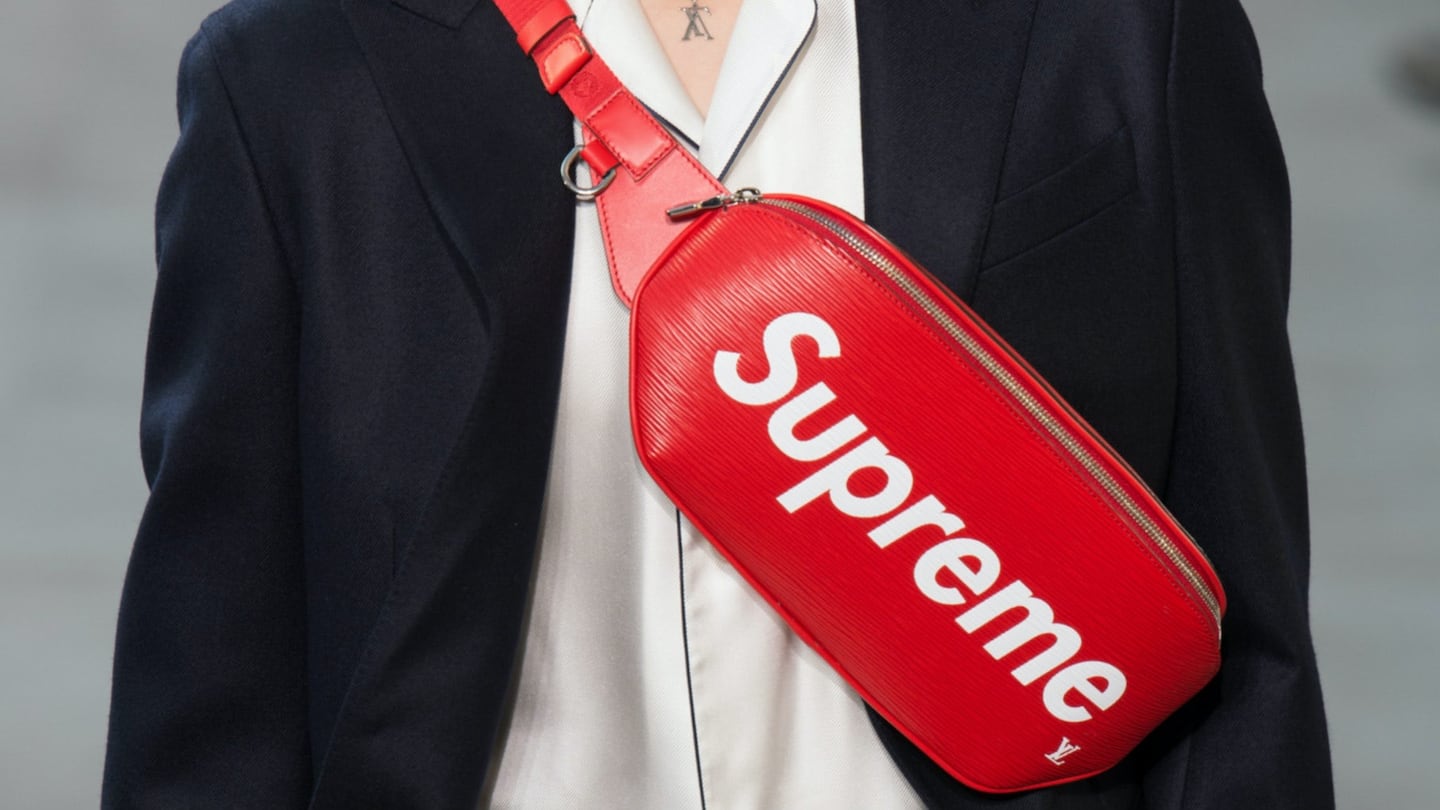
The Business of Fashion
Agenda-setting intelligence, analysis and advice for the global fashion community.

Agenda-setting intelligence, analysis and advice for the global fashion community.

LONDON, United Kingdom — On Thursday, a report that LVMH was rumoured have bought Supreme for $500 million surfaced, adding to further speculation that interest in the streetwear brand is heating up.
Sources close to LVMH said that the report was an unfounded rumour and denied a possible deal between the French luxury conglomerate and the cult streetwear label, despite a collaboration between Louis Vuitton and Supreme, unveiled at Paris Menswear Week in January.
A spokesperson for LVMH said the company had no comment. A spokesperson for Supreme confirmed that the news was a "rumour that was started online."
The rumours were also cast in doubt by an Instagram post from Kim Hastreiter, co-founder of Paper magazine and a close friend of Supreme founder James Jebbia, that said: "Rumour racing around. Likely not true (yet)."
ADVERTISEMENT
Though the reports were denied, this is not the first acquisition rumour to circulate around Supreme. Certainly, the addition of Supreme to a global conglomerate’s stable could provide a number of interesting synergies. For instance, Supreme’s mastery in creating hype around its products is something LVMH could learn from.
"In the fashion landscape today, to be a truly successful company, you need to have a very strong cultural consumer base, something Supreme excels at," Geoff Cook, partner at branding studio Base Design told BoF.
"In terms of the quality of product [from Supreme] and tightly controlling the distribution, that is actually very similar to the way luxury brands operate and I think that the LVMHs of the world could learn a lot from that."
The rumours come as LVMH announced last Friday it had set up a new venture aimed at investing in small fashion, cosmetics and accessories companies with high growth potential. LVMH Luxury Ventures will buy stakes in luxury firms with sales between €2 million and €5 million and comes as the luxury giant is slowly expanding its portfolio in order to tap the growing consumer base seeking experiences rather than products.
In October 2016, for instance, LVMH announced it had purchased an 80 percent stake in suitcase maker Rimowa for $640 million. And in December, the company's investment arm, L Catterton Europe, signed a deal to acquire a majority stake in Italian bicycle maker Pinarello.
"It is becoming more and more interesting for conglomerates to look at companies at an earlier stage, mainly because of the [relevance of] the internet and because smaller companies are able to scale very quickly," said Cook. "Acquiring Supreme would be an exceptional deal for LVMH or any number of other companies."
While Supreme creates seasonal collections, its weekly drops generate so much interest that entire forums are dedicated to celebrating purchases and guessing which particular pieces will sell out first. Traffic to the brand's website can spike by as much as 16,800 percent on the first "drop day" of a new season, Samuel Spitzer, who leads Supreme's e-commerce operation, told BoF in a previous interview.
"In terms of brand equity, and what they have built, it's extraordinary," said Cary Leitzes, founder of creative agency Leitzes & Co. "They have an unbelievable product and brand.
ADVERTISEMENT
"From an audience play, their demographic is so engaged, so not only does Supreme have a following, but it's a loyal following and it's with such a high engagement. And tapping into that millennial audience and that streetwear audience is a whole new demographic for a company like LVMH."
"It would give them the opportunity to grow them up to their other brands and help them diversify their portfolio," she added.
Editors' Note: An earlier version of this article stated that the Louis Vuitton and Supreme collaboration was unveiled at Paris Couture Week. This is incorrect. It was unveiled during Paris Menswear Week.
Disclosure: LVMH is part of a group of investors who, together, hold a minority interest in The Business of Fashion. All investors have signed shareholders’ documentation guaranteeing BoF’s complete editorial independence.
Related Articles:
[ ‘A New Supreme Hoodie Feels as Good as a New Designer Bag’Opens in new window ]
[ James Jebbia on Taking Supreme GlobalOpens in new window ]
[ What the Fashion System Can Learn From Supreme-Style Product DropsOpens in new window ]
The Swiss watch sector’s slide appears to be more pronounced than the wider luxury slowdown, but industry insiders and analysts urge perspective.
The LVMH-linked firm is betting its $545 million stake in the Italian shoemaker will yield the double-digit returns private equity typically seeks.
The Coach owner’s results will provide another opportunity to stick up for its acquisition of rival Capri. And the Met Gala will do its best to ignore the TikTok ban and labour strife at Conde Nast.
The former CFDA president sat down with BoF founder and editor-in-chief Imran Amed to discuss his remarkable life and career and how big business has changed the fashion industry.